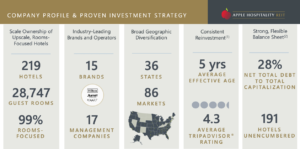The advent of ChatGPT shattered conventional notions of what AI could achieve. Armed with the power of GPT-3.5, a colossal language model honed through massive datasets and rigorous training, ChatGPT became a virtual oracle capable of deciphering, comprehending and generating human-like text with uncanny accuracy. Machines were understanding the nuances of human language like never before.
The impact was immediate. Many were impressed by it and many were afraid of the impact on jobs and humanity. Meanwhile, companies were trying to figure out how to integrate generative AI into their product offerings.
For India, it seems to offer an excellent opportunity to excel in the AI realm. Skill India, a campaign by the Indian government’s ministry of skill development and entrepreneurship– which aims to provide market-relevant skills training to India’s youth – and the edtech company GUVI (Grab Ur Vernacular Imprint) collaborated for the AI for India 2.0 program in 2023. This was a free online training course focused on AI to empower the youth, especially in rural areas.
AI can even reshape the financial landscape by designing and delivering financial products, helping Indian startups, improving India’s agricultural ecosystem, healthcare and more. According to forecasts, AI could add close to a trillion dollars to India’s economy by 2035, leading to an annual growth rate of 1.3% points.
India has a diverse, large, skilled and talented population, which is technologically savvy and intellectually curious, so it could provide a vast user base for AI companies. According to Nasscom, India has over 60 generative startups as of June 2023. In a general sense, IT companies in India may be depending on readymade models to provide services, rather than developing or building their own AI capabilities. But, IT companies like Tata Communication Services (TCS), Wipro, Tech Mahindra and Infosys now seem to be focusing on AI in 2023.
TCS and Wipro are said to leverage Google Cloud’s generative AI services to formulate customized business solutions. Tech Mahindra has announced a partnership with Google for a generative AI-powered customer service. That being said, Infosys had rolled out its AI-first set of services called Topaz to service client projects.
According to Similarweb, India is the second-biggest user of OpenAI’s ChatGPT with about 8.5% of global users, as of August 2023. It’s not the only developing country that has a lot of ChatGPT users. Brazil (3.22%) and Colombia (3.13%) are also some of the biggest users of ChatGPT, but not as much as India and the US.
The guinea pig question
But, that does raise the question: Are we guinea pigs for AI companies to improve their AI models? Is that why a model like ChatGPT 3.5 is free? Or is it all about democratising access to AI? And what about user input? Is ChatGPT becoming smarter with every prompt?
In one conversation, it can remember previous inputs, as long as a new chat isn’t opened. OpenAI also announced that there could be custom instructions when using ChatGPT. It’s said that the answers are only based on the information it was trained on, so it may not get smarter with every prompt as such. But, it can be more refined by a process called “fine-tuning”, where feedback is collected from users on problematic model outputs. This feedback is used to make targeted improvements, which could retrain the model on new data including demonstrations of correct behaviour. It also applies a method like RLHF (reinforcement learning from human feedback), where the model is fine-tuned using a reward model based on human responses.
This could generate more desirable and appropriate responses. So, are we bettering ChatGPT for free? Are we being used to train an LLM with every piece of feedback? Maybe, to even make us more obsolete? Should AI companies like OpenAI be charged for making their AI model better? Or as Indians, we do not mind, because it’s free and ChatGPT helps us out as well?
As the race for AI dominance escalates, it could fuel geopolitical rivalries, as nations strive to harness AI’s potential for economic advancement, technological supremacy and global influence. Look at how AI can create lifelike text, images, and videos. This raises direct geopolitical concerns, due to its capability to craft precise deepfake videos, orchestrate disinformation campaigns and execute large-scale cyber attacks. So, these could pose undeniable threats to national security, the integrity of trusted institutions and the capacity to reshape power dynamics between countries.
And as nations vie for technological supremacy, it becomes a source of national pride, influence and competitive advantage. Developing and deploying advanced generative AI technologies are seen as indicators of a country’s technological prowess and innovation capacity. So, this race for dominance can lead to intense competition and significant investments in research and development. AI leadership could even translate into more power and global influence.
Countries that pioneer AI technologies and set ethical standards could gain the ability to shape international norms, standards and regulations, influencing the global adoption and governance of AI technologies. Sharing AI expertise, collaborating on AI research and providing technical assistance can strengthen diplomatic ties and partnerships.
So, AI could create a digital divide and a power equation between developed and developing countries. It may be that developing nations would struggle to keep pace with AI developments, due to the lack of expertise and resource constraints. This could certainly lead to the consolidation of technological power among the few nations, reinforcing existing inequalities.
Plus, AI relies heavily on data for training and improvement. So, countries, like India, with access to vast and diverse datasets can have a bigger user base for more robust AI models. But, instead of being an issue, maybe this could incentivise a country like India to be part of data-sharing agreements and collaborations, fostering diplomatic relationships and partnerships built on shared technological interests.
Major global powers like the United States, China and Russia, are investing heavily in generative AI. According to a report, China leads the world in the number of generative AI startups to receive funding in H1 2023. In May 2023, the White House announced it would invest about $140 million to create seven AI research hubs. In 2023, at the St Petersburg Forum, Russian President Vladimir Putin gushed about Russia’s progress on AI, while also remarking that Russia needs to focus on strengthening information security and monitoring the circulation of data so that it doesn’t harm national security or the interests of Russian citizens.
AI may propel surveillance capitalism and erode liberties
But what about surveillance capitalism? People have been talking about the potential dangers that lie with AI for a long time now. If AI is getting more and more advanced, it could learn to predict and control human behaviour like never before. This means that we would relinquish our thoughts and actions to algorithms that aim to maximize profits by influencing and manipulating us.
Surveillance capitalism involves the extensive collection of personal data, often without informed consent. AI algorithms could process and analyse data to create highly detailed profiles of people, including their behaviour, preferences and browsing history. AI could even predict human behaviour based on historical data, anticipating what a person might be interested in, what decisions they may make and what their emotional state may be. This could help companies tailor their offerings with remarkable precision. With AI, tech companies could have the next step of content customized to individual users. So, how much can AI erode our personal liberties?
What could this all mean for Indian startups, especially those operating in the AI space? The global demand for AI talent may be growing, so Indian startups may face challenges in recruiting and retaining skilled AI professionals. This could drive up labour costs, so AI startups may have to create attractive work environments and offer competitive compensation packages. Is AI a winner-take-all market? With AI hostility warming up, perhaps each country will have to build its own AI advantage.
With a geopolitical race for AI dominance, AI startups in India are not only competing with domestic rivals but also international tech giants and startups. In June 2023, OpenAI’s Samuel Altman expressed scepticism about the Indian startup ecosystem developing an AI tool comparable to ChatGPT and competing with OpenAI. He said that trying would be hopeless, but that it was the job of Indian startups to try anyway.
There may also be an opportunity, however, to access global markets and collaborate with foreign partners, as and when feasible. That being said, access to data is crucial for developing AI. Geopolitical tensions could affect data-sharing agreements and data access, which could impact how Indian startups train and improve their AI models. So, Indian startups would need to figure out how to navigate evolving data privacy regulations.
The geopolitical climate could also mean that investment flows into Indian startups could be impacted. This could add fuel to the fire, at a time when there are already macroeconomic headwinds and a funding crunch. To thrive in this environment, Indian AI startups need to remain adaptable, innovative and well-informed about the evolving geopolitical landscape.
So, there’s no doubt that artificial intelligence has opened a whole new world of tantalizing possibilities. But, at the same time, the risks around the advent of AI cannot be swept under a carpet. AI may just introduce a new dimension to national and international relations, may change the dynamics of ethics and human rights and exacerbate issues like bias and privacy infringement. Can generative AI be kept in check, as it moves from a technological novelty to a global force?
Shrija Agrawal is a business journalist who has covered startups and private capital markets before it was considered cool in India.
The views expressed are personal
















